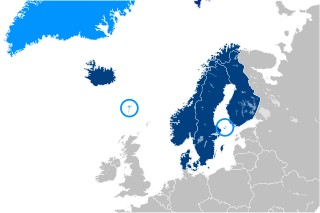Related Research Articles

In the United States, Social Security is the commonly used term for the federal Old-Age, Survivors, and Disability Insurance (OASDI) program and is administered by the Social Security Administration (SSA). The original Social Security Act was enacted in 1935, and the current version of the Act, as amended, encompasses several social welfare and social insurance programs.

The United States Social Security Administration (SSA) is an independent agency of the U.S. federal government that administers Social Security, a social insurance program consisting of retirement, disability and survivor benefits. To qualify for most of these benefits, most workers pay Social Security taxes on their earnings; the claimant's benefits are based on the wage earner's contributions. Otherwise benefits such as Supplemental Security Income (SSI) are given based on need.

National Insurance (NI) is a fundamental component of the welfare state in the United Kingdom. It acts as a form of social security, since payment of NI contributions establishes entitlement to certain state benefits for workers and their families.
Unemployment benefits, also called unemployment insurance, unemployment payment, unemployment compensation, or simply unemployment, are payments made by authorized bodies to unemployed people. In the United States, benefits are funded by a compulsory governmental insurance system, not taxes on individual citizens. Depending on the jurisdiction and the status of the person, those sums may be small, covering only basic needs, or may compensate the lost time proportionally to the previous earned salary.

The Department for Work and Pensions (DWP) is a United Kingdom government department of His Majesty's Government responsible for welfare, pensions and child maintenance policy. As the UK's biggest public service department it administers the State Pension and a range of working age, disability and ill health benefits to around 20 million claimants and customers. It is the second largest governmental department in terms of employees, and the largest in terms of expenditure (£187bn).
Jobseeker's Allowance (JSA) is an unemployment benefit paid by the Government of the United Kingdom to people who are unemployed and actively seeking work. It is part of the social security benefits system and is intended to cover living expenses while the claimant is out of work.

Jobcentre Plus is a brand used by the Department for Work and Pensions in the United Kingdom.

Harold Wilson was appointed Prime Minister of the United Kingdom by Queen Elizabeth II on 16 October 1964 and formed the first Wilson ministry, a Labour government, which held office with a thin majority between 1964 and 1966. In an attempt to gain a workable majority in the House of Commons, Wilson called a new election for 31 March 1966, after which he formed the second Wilson ministry, a government which held office for four years until 1970.
Local Housing Allowance (LHA) was introduced by the government of the United Kingdom on 7 April 2008 to provide Housing Benefit entitlement for tenants renting private-sector accommodation in England, Scotland and Wales. The LHA system introduced significant changes to the way Housing Benefit (HB) levels are restricted and how benefit is paid. It did not replace Housing Benefit - it is just a different way of calculating entitlement under the existing Housing Benefit scheme: the Local Housing Allowance is based on the 30th percentile of local rented accommodation, while the 50th percentile or median was used from the introduction of the policy until 2011. LHA rates relate to the area in which the housing-benefit claim is made. These areas are called "Broad Rental Market Areas", defined as "where a person could reasonably be expected to live taking into account access to facilities and services", and a selection of rents in the area are used to determine the LHA for each category of housing in the area.
Income Support is an income-related benefit in the United Kingdom for some people who are on a low income, but have a reason for not actively seeking work. Claimants of Income Support may be entitled to certain other benefits, for example, Housing Benefit, Council Tax Reduction, Child Benefit, Carer's Allowance, Child Tax Credit and help with health costs. A person with capital over £16,000 cannot get Income Support, and savings over £6,000 affect how much Income Support can be received. Claimants must be between 16 and Pension Credit age, work fewer than 16 hours a week, and have a reason why they are not actively seeking work.

The Labour Party governed the United Kingdom of Great Britain and Northern Ireland from 1974 to 1979. During this period, Harold Wilson and James Callaghan were successively appointed as Prime Minister by Queen Elizabeth II. The end of the Callaghan ministry was presaged by the Winter of Discontent, a period of serious industrial discontent. This was followed by the election of Conservative leader Margaret Thatcher in 1979.

The Third Labour Government of New Zealand was the government of New Zealand from 1972 to 1975. During its time in office, it carried out a wide range of reforms in areas such as overseas trade, farming, public works, energy generation, local government, health, the arts, sport and recreation, regional development, environmental protection, education, housing, and social welfare. Māori also benefited from revisions to the laws relating to land, together with a significant increase in a Māori and Island Affairs building programme. In addition, the government encouraged biculturalism and a sense of New Zealand identity. However, the government damaged relations between Pākehā and Pasifika New Zealanders by instituting the Dawn Raids on alleged overstayers from the Pacific Islands; the raids have been described as "the most blatantly racist attack on Pacific peoples by the New Zealand government in New Zealand’s history". The government lasted for one term before being defeated a year after the death of its popular leader, Norman Kirk.
Social security, in Australia, refers to a system of social welfare payments provided by Australian Government to eligible Australian citizens, permanent residents, and limited international visitors. These payments are almost always administered by Centrelink, a program of Services Australia. In Australia, most payments are means tested.
Welfare rights means the rights of people to be aware of and receive their maximum entitlement to state welfare benefits, and to be treated reasonably well by the welfare system. It has been established in the United Kingdom since 1969 and has also been developed in other countries including Ireland, Australia and the United States. It became necessary because of the complexity of the UK social security system and had links at the time with a growing Claimants Union movement. As local authorities realized the advantages of having well-informed front-line staff such as housing officers and social workers, who often have to deal with benefit queries as part of their wider tasks, they turned to welfare rights staff to provide that expertise for both training and handling complex cases. In the 1980s, as local authorities took on the wider 'equalities' agenda, anti-poverty work was seen as a valid local activity in itself. Increasing benefit income helps individuals but also boosts the local economy.
Attendance Allowance is a non-contributory Social Security benefit paid to elderly disabled people in the United Kingdom. It was introduced in the National Insurance Act 1970. The benefit is intended to provide support for those who live independently but might otherwise need to go into residential care. It is paid by the Department for Work and Pensions. The Social Security Contributions and Benefits Act 1992, integrated Mobility Allowance and Attendance Allowance into a new benefit Disability Living Allowance for people under 65.

Social security or welfare in Finland is very comprehensive compared to what almost all other countries provide. In the late 1980s, Finland had one of the world's most advanced welfare systems, which guaranteed decent living conditions to all Finns. Created almost entirely during the first three decades after World War II, the social security system was an outgrowth of the traditional Nordic belief that the state is not inherently hostile to the well-being of its citizens and can intervene benevolently on their behalf. According to some social historians, the basis of this belief was a relatively benign history that had allowed the gradual emergence of a free and independent peasantry in the Nordic countries and had curtailed the dominance of the nobility and the subsequent formation of a powerful right wing. Finland's history was harsher than the histories of the other Nordic countries but didn't prevent the country from following their path of social development.
The Social Fund in the UK was a form of welfare benefit provision payable for exceptional or intermittent needs, in addition to regular payments such as Jobseeker's Allowance or Income Support.

The Welfare Reform Act 2012 is an Act of Parliament in the United Kingdom which makes changes to the rules concerning a number of benefits offered within the British social security system. It was enacted by the Parliament of the United Kingdom on 8 March 2012.
Family Income Supplement was a means-tested benefit for working people with children introduced in Britain in 1970 by the Conservative government of Edward Heath, effective from August 1971. It was not intended to be a permanent feature of the social security system and was abolished by the Social Security Act 1986, which replaced it with Family Credit.
The capital rule is a British rule for determining eligibility for social security benefits. The means tested social security system in the United Kingdom has always operated an eligibility test for savings. The Poor law required claimants to be destitute but there does not appear to be any documentation about how the test of destitution was applied. The great increase in home-ownership during the twentieth century in the UK necessitated detailed rules about how a claimant's capital should be treated. Since at least 1948 the value of a claimant's home has been disregarded in assessing their resources.
References
- ↑ Ogus, A; et al. (1988). The Law of Social Security (3 ed.). London: Butterworth & Co. ISBN 978-0406633705.
- ↑ Archives, The National. "The Discovery Service". discovery.nationalarchives.gov.uk.
- ↑ Rose, Hilary (1973). "Up Against the Welfare State: Claimants Unions". Socialist Register.
- ↑ Wikeley, Nick (28 November 2018). "Burying Bell: Managing the Judicialisation of Social Security Tribunals". The Modern Law Review. 63 (4): 475–501. doi:10.1111/1468-2230.00276. JSTOR 1097430.